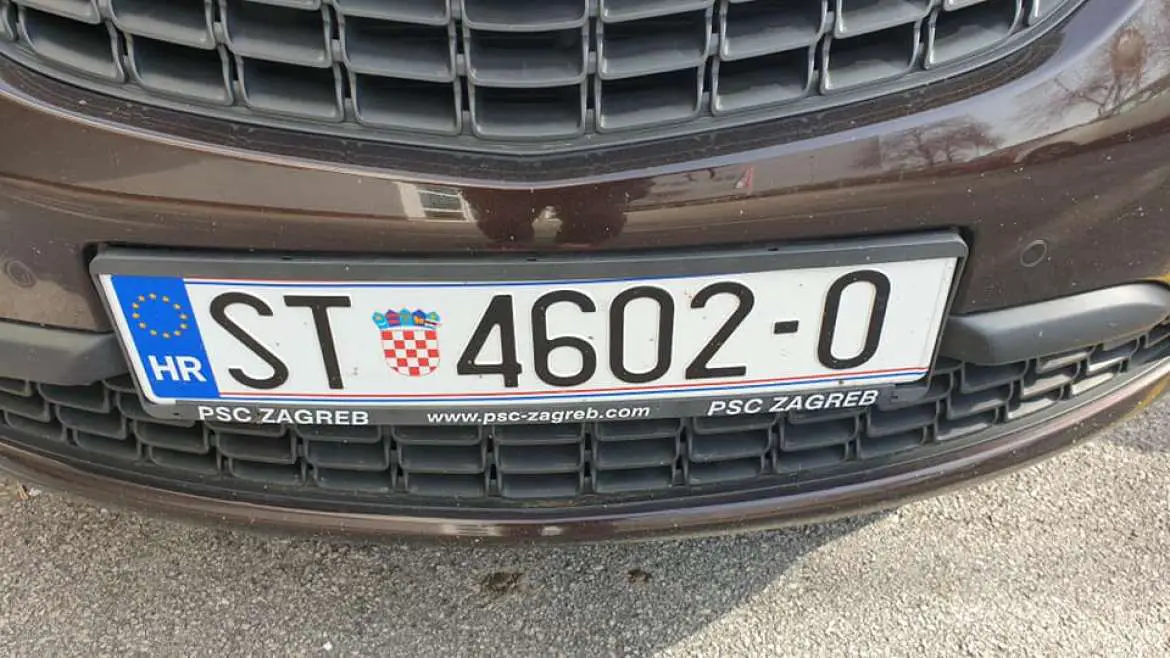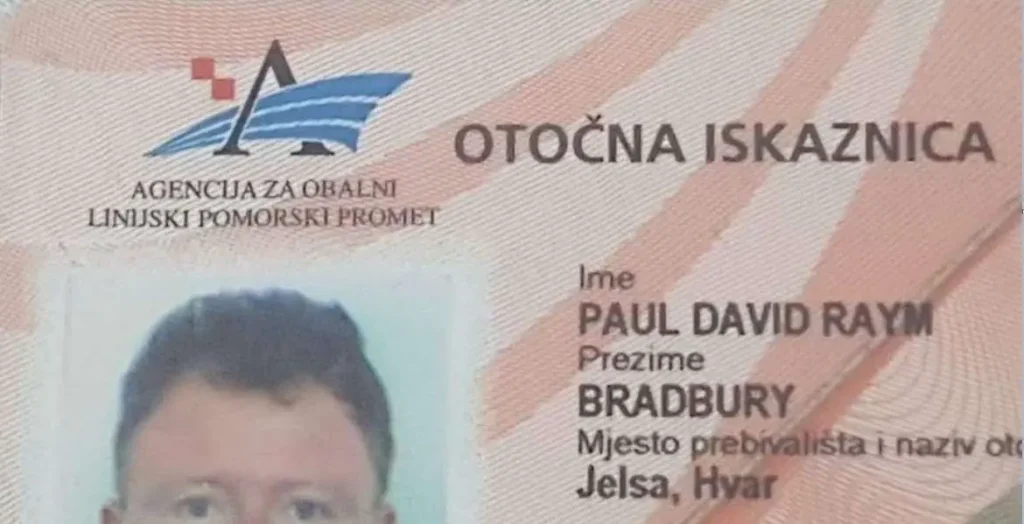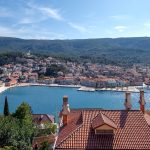I am a child of the Soviet Union.
No, this is not some revelation that I have been leading a double life all these years, more an explanation that my exposure to the socialist/communist bureaucratic mentality started more than 30 years ago with my first forays into Eastern Europe before the Berlin Wall came down and then a summer in Moscow when the Soviet Union was still a thing.
And therefore, for almost 35 years now, absurdity and the absurdity of bureaucracy have been a part of my life. There has been much frustration along the way, as well as much humour, but I have come to accept that living in this part of the world comes with the reality that there is an official mindset reality that exists and is hard to change, and absurd rules with no rhyme or reason are blindly enforced. Why, for example, did I have to spend almost £100 a year in Croatia ordering a new birth certificate every year for my temporary residence? A birth certificate proves you were born, but in Croatia only one which was less than 6 months old was valid. You can either rail against them or accept them and get on with life.
I chose life.
After the fall of the Soviet Union, I returned to live in Russia for 15 incredible months, in some rather far-flung places in that vast country, and the full force of post-Soviet bureaucracy, absurdity and logic was all around me. One of my best friends was a former captain in the Soviet special forces, and I asked him once for his favourite examples of absurdity in his country.
“I think it was the canteen in the military barracks where we were stationed once. There were two things that stood out for me. The first was that the canteen staff would take their lunch break at lunchtime, which proved to be a challenge feeding us. And the second was the spoons. There had been a continuous theft of spoons from the canteen, so it was decided to stop the thief by deterring him from stealing. The order was given – and implemented – to drill a hole in the middle of the spoons. This made the spoons worthless but they weren’t much fun when trying to eat soup, but I can’t deny that the thefts stopped overnight. A little like Stalin’s Five Year Plans, there are many ways to present a story.”
When I moved to Croatia in 2002, I had not been in the region for several years, mostly in the UK. Although I had come from Africa, which has its own approach to bureaucracy (my favourite story was of the BBC reporter at Nigerian immigration. You don’t have a visa – you must pay US$50. Yes I do, here it is, pointing to the visa in the passport. I can’t see it, comes the reply, as the immigration officer rips the page out of the passport. Fifty bucks or no entry).
It didn’t take me long to get back into the socialist bureaucratic mentality. No, we can’t accept this form, as you need to buy some tax stamps for 10 kuna, and no we don’t sell them here. This page is missing a stamp. As a foreigner, you are in the wrong room. The list – and the frustrations – went on. I was shielded initially from much of the bureaucratic process by my long-suffering Croatian girlfriend and now wife, who entered the battle on my behalf with her superior language skills and better cultural understanding.
But gradually I got to do some of the battles myself, when I was left alone to deal with the absurdity and frustration myself. And I have to admit, I am having rather a lot of fun.
You see, there are two ways to approach Croatian bureaucracy, at least from where I am sitting. The most popular option is to vent against it, express your frustrations to anyone who will listen, and share all the negativity and anger with the world. This is an understandable and common reaction, but not one that have ever used. For the simple reason that there is rarely a positive result, other than friends and family expressing sympathy.
I have never seen any point in complaining on social media, as people are generally not interested in hearing other people’s problems – they have enough of their own. But social media I have found to be a FABULOUS tool when trying to deal with Croatian bureaucracy. It is one of my three strategies.
I first learned of the power of social media, not to rant but to find solutions, about 15 years ago. The Internet went down at home, and my wife called to find out when it would be restored. We will come in 7 days, came the reply, hardly an ideal situation for a blogger on a deadline. I had to take my mobile office to a local cafe.
The next day, I was in the (smoky) cafe again on deadline, this time with my young kids, as my wife was in Split. It was clearly an intolerable situation and one which would last at least another 6 days. There MUST be a solution to this, surely? A Croatian solution? I took to Facebook, explaining my situation.
Does anyone have a Croatian solution for my problem, my post concluded.
What happened next was extraordinary, and my Internet was restored in half an hour.
A friend sent me the name and email of the PR lady for the telecom company, explaining that she hates bad press and that if I politely explained my situation and that I was a British blogger writing about Croatia, perhaps she might be helpful. I did as my friend suggested, received a reply with apologies within two minutes, and my Internet was restored in an hour. This was followed by one more apology and an invitation to contact her directly if I needed anything else. It was the finest example of customer service in my 20 years in Croatia.
There is a postscript.
A few months later, a friend of mine with a tourism agency on Hvar called me. It was the season, his Internet was down, and he had been told it would be 9 days until they could come and fix it. What had I done to get mine fixed and could I help? I sent a polite email to the PR lady, copying my friend, reminding her that she had invited me to contact her if there was anything more she could do. Three hours later, my friend called me to invite me to dinner – his Internet had been restored.
But I love using social media for other reasons too, and with successful results. Many Croatians are really interested in what foreigners think of their country, especially ones like me who make the insane decision to move here by choice when everyone is emigrating. Most foreigners here only scratch the surface of how this country works (or doesn’t work, depending on the viewpoint), and so when a foreigner takes to social media with the topic being bureaucracy, it is time to reach for the popcorn. It is also a time when Croatians are very generous with their contacts and advice, and rather than getting frustrated with bureaucracy, one can find a quick solution.
Against my better judgment, I opened a new company, a jdoo, last year. Everything went incredibly (and I mean incredibly) smoothly until the very last hurdle, which should have been the easiest of all. As a foreigner with permanent residency owning a business, my bank in Varazdin informed me that I could no longer open a bank account in Varazdin, but would have to do so in the head office in Zagreb, around 80 km away. The year is 2021. Absurd in this digital age and after such a smooth experience opening the company, but I decided to go with the flow – I was due in Zagreb the next day and would pop in and open the account. My wife suggested I check if I needed an appointment and called ahead. Indeed I did – and the next free spot was in THREE weeks. That’s right. In 2021, a bank I had been with for 18 years with my personal and business accounts (and so knew who I was) were offering the best option to open an account of a 3- week wait and 160 km round trip.
I asked on Facebook if anyone had any suggestions, and a lively debate ensued. The following day, I met Nenad from Raiffeisen Bank who had told my wife over the phone that he could open the account in Varazadin (without the need to go Zagreb) in one hour. As we shook hands, I levelled with him.
“Nenad, let me be open with you. I am a frustrated journalist. If you can really open this account in less than an hour, I will make you a superstar.” You can read what happened next in Opening a Croatian Business Bank Account as a Foreigner… in 46 Minutes.
There are two postscripts. Five people contacted me to thank me for the article, explaining that they were now in the process of moving their business from my bank to Raiffeisen. And Nenad called me to thank me – head office in Zagreb had called him with a commendation.
I was having so much fun that I even started a section on TCN (which I must get back to) called Croatian Bureaucracy, a Love Affair.

One of the great benefits of trying to publicly find solutions to absurd Croatian bureaucracy is that kindred spirits, many of whom have been fighting their own battles, enter the fray. I was driving a car last year ago with the number plate above and I paid for SMS parking in Varazdin, then in Zagreb the folliowing day. I was surprised to get parking tickets from both. I took a closer look at the number plate – the 0 were both exactly the same, but were they both numbers or was one a letter?
A friend who has dedicated much of his life to the minutiae of Croatian bureaucracy came to my aid and we eventually sorted things out, but not before discovering that the confusion was deliberate. A rather fun read in Croatian Bureaucracy, a Love Story: 1. The Car Licence Plate.
But the real battleground in Croatian bureaucracy is with officials in their offices. Some are outstanding, but quite a number have no interest in their job, or being disturbed, and least of all you. Especially if you are a foreigner who probably can’t speak Croatian. There are computer games to be played after all. And it was in this context that I learned my biggest lesson back in 2013 when I went through the (hellish) ordeal of importing a car from Germany. That I did it with a monstrous hangover made me all the more proud that I survived the day.
I think I had to go to about nine offices in all – stamp here, signature, there, form filled out here, you know the drill. Office number 6 was where it happened. I knocked. No answer. I opened the door and saw a heavy-set official through a cloud of cigarette smoke at his computer. After a moment, he looked up, looked at me, looked through me, then returned to his important work (which turned out to be a computer game).
We have all been there. How could I get the stamp I needed?
“Sorry to bother you,” I began in my best Croatian. “I need a stamp from you to import my car.”
Silence. No reaction, save from the click of the keyboard on the computer game.
“Also,” I went on, “I am a writer researching a story on how the Croatian customs house has changed since EU entry. Would it be possible to give me a quote, and could I perhaps take your picture?” I lifted my camera in hope.
“No picture. No quote. Give me the paper,” he shouted. Stamp. I was out of the room with all I needed 10 seconds later. There was just enough time to catch a glimpse of his computer screen and the important work he was doing.
The episode made me realise that the concepts of blogging, social media and publicity are ones which these officials want to avoid at all costs. They are quite happy to be left alone in their sheltered and well-paid world, little use to anyone but themselves.
Be polite but insistent. Croatian friends have tried the same tactic, also with success. My brother is writing an article about, my friend is doing a blog on – can I get some pictures, etc.
Bureaucracy and mindset. Vent on social media if it makes you feel better. Or try and look at things with the goal of finding a solution and having fun along the way. The fact that Croatian bureaucracy stories are fun to write is an extra bonus for me. Did you hear about the Brit who had too many names for Croatian bureaucracy, and for years he was known not as Paul David Raymond, but Paul David Raym, which was a problem for his kids graduating from school as officially they had more than one father? I will leave that story for another time, unless you want to read it in Absurdistan: Why You Should Never Have Too Many Names in Croatia.
And no, I don’t win every time, hardly at all in fact, as Croatian bureaucracy is hard to beat. But it is fun trying, and those little victories mean more than perhaps they should to people in less bureaucratic societies.
****
What is it like to live in Croatia? An expat for 20 years, you can follow my series, 20 Ways Croatia Changed Me in 20 Years, starting at the beginning – Business and Dalmatia.
Follow Paul Bradbury on LinkedIn.
Croatia, a Survival Kit for Foreigners will be out by Christmas. If you would like to reserve a copy, email [email protected] Subject 20 Years Book











